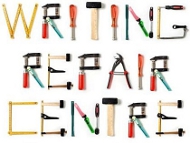 Just as it’s hard to draw something you’ve never seen, it’s hard to write well if you don’t read. I think we have to make that “if you don’t read good writing.” If you spend your day reading comic books, cereal boxes and facebook updates (even mine) your writing skills are unlikely to improve.
Just as it’s hard to draw something you’ve never seen, it’s hard to write well if you don’t read. I think we have to make that “if you don’t read good writing.” If you spend your day reading comic books, cereal boxes and facebook updates (even mine) your writing skills are unlikely to improve.
When I ask folks I consider to be good writers how they gained that skill, there are lots of answers. Most common? “My teachers encouraged me,” and “My teachers beat it into me.” Since we can’t really control what our teachers did to us, back in elementary school, let’s look at what we can do today.
The more practical answers are “Practice!” “I read (past tense)” and “I read (present tense).” Few will argue with the value of practice in mastering any skill, so let’s turn our attention to reading.
If you grew up in a home where library cards were used more often than credit cards, your chances of being a good writer are high. Reading good writing does more than expose you to the correct rules of grammar. It exposes you to ideas – ideas expressed in words by people who care about being informative, entertaining or both.
My own interest in writing took hold when, in sixth grade, we studied Charles Dickens’ classic novel, Great Expectations. Our teacher, Mrs. White, read chunks of it aloud and we followed the adventures of a young boy with a mysterious benefactor. Dickens brought his world and my imagination to life. He painted word pictures, leaving images of places and people indellibly etched on my 11-year-old mind. And there were no pictures in that book.
Dickens’ writing is the image I hold when I write anything. I’ll never write as well as he does. It’s unlikely that I’ll ever write novels. I’m a business communicator. Tomorrow’s project is writing instructions for using a computer system. Not very Dickensian. But I love the idea that it’s possible to make ideas real, and to stir people’s feelings using only words.
So find an author you love, whose work makes you feel something, learn something and enjoy it. And just keep reading. That’s Rule #6.



